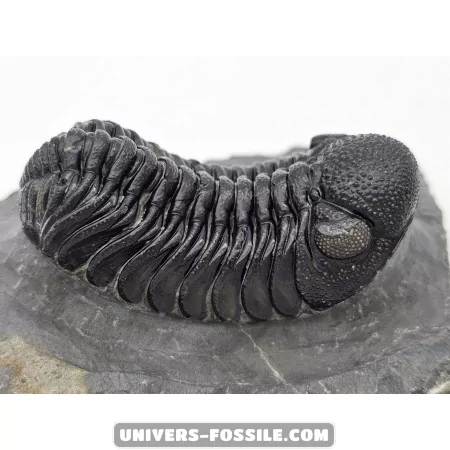Phacops Trilobites - Fossils of Ancient Marine Creatures

Phacops Trilobites
Explore the world of Phacops trilobites, fascinating creatures that thrived millions of years ago in the ancient seas. These arthropods are true marvels of the Paleozoic era.
Origin and Evolution
Step back in time to 400-450 million years ago and discover the enchanting world of Phacops trilobites. These intriguing beings roamed the shallow seas, showcasing their segmented bodies and hard exoskeletons to conquer a variety of marine habitats.
Anatomy
Admire the segmented external exoskeleton of Phacops trilobites, divided into three lobes, and their remarkable compound eyes that aided in prey detection and predator avoidance. Witness their agile movements with segmented appendages as they navigated the seafloor.
Habitat and Lifestyle
Picture the benthic existence of Phacops trilobites as they foraged for organic debris and small organisms on the seafloor. Their swift movements allowed them to outmaneuver predators and survive in the dynamic marine ecosystem.
Phacops Trilobites
About Phacops Trilobites
Phacops trilobites were ancient marine creatures known for their ability to find food in their environment. Fossils of Phacops trilobites are quite common in certain regions of the world, including North America and Europe. They are often found in sedimentary layers dating from the Devonian period, a geological period that spanned from 419 to 358 million years ago. Phacops fossils provide valuable insights to paleontologists about the biodiversity and evolution of ancient marine ecosystems.
Importance of Phacops Fossils
Phacops trilobites are fascinating creatures that thrived hundreds of millions of years ago in the ancient seas of the Earth. Their fossils offer us valuable insights into prehistoric marine life and help us better understand the history of our planet. Whether it's their complex anatomy, intriguing lifestyle, or significance in understanding our geological past, Phacops trilobites continue to exert a lasting fascination on those interested in the ancient world around us.
